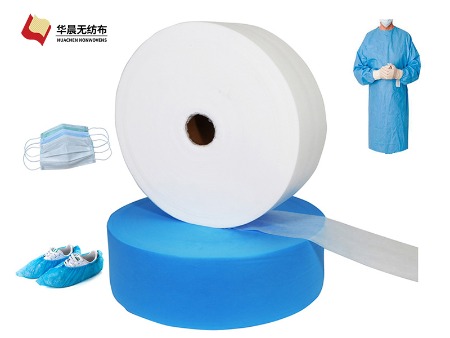Packing Use Nonwoven Fabric is a type of packaging material. These fabrics are strong and durable and are made of environmentally friendly materials. They are also lightweight and flexible.They are dermatologically safe, meet pharmaceutical industry requirements on sterilized packaging and are breathable. This is a major factor behind their popularity in absorbent hygiene products.

1. Lightweight
Nonwoven fabrics are a great alternative to cardboard when it comes to protective packaging. They are lighter, cheaper and more durable. Plus, they are also easier to work with. Nonwovens are also a better fit for some products, since they don’t have to be made-to-measure like cardboard boxes do.In the food industry, we’re seeing increased demand for nonwovens based on sustainability. Nonwovens are also used in the construction industry for linings, pipe covers and acoustical ceilings. In the agriculture sector, they are used for root bags, soil erosion control and weed prevention fabric. In automotive and transportation, they are a great choice for console box liners, battery separators, wheel-well acoustic reinforcements and headliners backings.
2. Durable
Nonwoven fabrics are durable and can be used again and again. They also require little energy in their manufacturing process. They do not release toxic substances into the air or soil like many plastics. In addition, they do not contain Bisphenol A, a chemical that has been worrying people and health specialists for quite some time.Spun bond nonwovens are made of continuous filaments that are laid into a web and then subjected to self-bonding, thermal bonding or chemical reinforcement. They are highly durable and have a good ability to resist stains, wrinkles and UV radiation.Food pads are one of the fastest growing categories in the global nonwovens market. This is mainly because of the Covid-19 pandemic, which has resulted in a greater emphasis on food hygiene and less eating out. They are primarily sold to converters that produce the pads for the food industry.
3. Reusable
A lot of people use reusable bags when buying groceries or other items. Most of those reusable bags are made from non-woven polypropylene spunbond, and are safe for the environment. They are also recyclable, so they can be used again and again.The textile industry makes extensive use of non-wovens, including in a wide range of packaging materials. Spunbond nonwoven fabrics are particularly ideal for disposable outer packaging because they are exceptionally lightweight and warrant energy-efficient production, shipping, and storage. Moreover, they have long life and robustness.In addition, they can be printed and tailored to specific dimensions of products. Unlike plastic bags, which must be made to fit the product, non-wovens can be folded into smaller sizes. This can reduce shipping costs, as it allows customers to pack more items into each box. In fact, many companies and retailers are making the switch to these environmentally friendly bags, and are reaping the rewards in terms of customer loyalty.
4. Eco-friendly
Using non-woven fabrics in packing ensures that the products inside are secure and safe. For instance, the absorbent pad under the meat you buy at the grocery store is made from nonwoven fabric. The reusable bags you bring to the store are also usually made from this material.Another benefit of using these types of materials for your packaging is that they are eco-friendly. They are lightweight, recyclable and do not release toxins into the air or soil. Moreover, they do not require any energy or fossil fuels in their production process. They are also free of Bisphenol A, which has been worrying people and health specialists for quite some time now.Furthermore, non-woven fabrics are a lot cheaper than plastics. They also do not need to be made-to-measure for each product. In fact, they can be folded and adjusted to fit a variety of sizes of goods. This saves storage space and money for the buyer, too.


